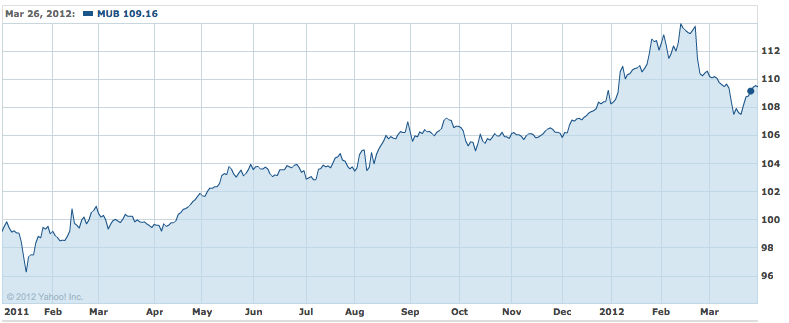The Diversity of Municipal Bonds and What You Need to Know About Risks
Post on: 9 Май, 2015 No Comment

by Robert Doty
The Securities and Exchange Commission ( SEC) estimates that there are 50,000 municipal securities issuers, and the Municipal Securities Rulemaking Board (MSRB) estimates that there are 80,000. Municipal issuers include states, agencies, cities, counties, school districts, fire districts and a host of special districts, agencies and authorities. It can be difficult to make sense of so much diversity.
In reality, the municipal market consists of two vastly different markets. One market is for traditional municipal securities that are very sound and secure, with extremely low default risks. The other is a market of readily identifiable riskier securities. Since the riskiest municipal securities can be identified readily in advance, there is no need for investors to be alarmed.
To know what you are buying requires reading official statements (prospectuses) and continuing disclosure filings made by municipal issuers and private borrowers. Those documents are available at the Electronic Municipal Market Access (EMMA) website maintained by the MSRB at emma.msrb.org. That website is a valuable resource.
Diversity of Municipal Bond Structures
It is important to understand varying municipal securities structures and their strengths and weaknessesgeneral obligation (GO) bonds, general fund securities (which are quite different from GO bonds), special tax bonds, and varying types of revenue securities.
Plus, as bond counsel opine, when municipal securities are issued, state courts will enforce issuers contractual obligations. This is why you should understand what the issuers have promised to do: Some promises are limited.
General Obligation Bonds
Local general obligation bonds are typically secured by pledged taxes and issuer agreements, as needed, to raise taxes without regard to rate or amount. Generally, there is no limit on that pledge. In some cases, however, there may be a cap on how much the taxes may be raised. Bond counsel opine that when the bonds are issued, the issuers obligations are enforceable. According to James Spiotto, a noted bankruptcy expert with the bond counsel firm of Chapman and Cutler, when the pledge is supported by a statutory lien precedent, the pledge should be protected in bankruptcy. For example, Harrisburg, Pennsylvania, which filed for Chapter 9 (municipal) bankruptcy last fall, has failed to make general obligation payments, but bondholders will have to wait for a judicial ruling on the enforceability of the citys general obligation pledge. (At the state level, general obligation bonds are payable from state general funds, but states have more diverse resources from which to make payment, and debt service often has a high priority of payment.)
To emphasize this point: The pundits and media that have been making alarmist predictions about general obligation bonds are simply wrong. These are very strong securities.
A caution: Although Jefferson County, Alabama, atypically labeled securities on which the county recently defaulted as general obligation warrants, the warrants were not approved by the countys voters; the county did not promise to increase ad valorem property taxes, if necessary, in order to pay the warrants; and, as the county stated deep in its official statement, the county did not specifically pledge taxes for that purpose. Instead, the county promised to pay the warrants solely from its general fund revenues.
So it is important to review carefully the security description in the official statement and to consider whether a statutory lien is present (a recent Moodys reports identifies 28 states that provide statutory liens).
General Fund Securities
Despite the similarity of the name, general fund securities are NOT general obligation bonds. General fund securities are commonly, but not always, in the form of securitized lease-purchase agreements [certificates of participation (COPs) or lease revenue bonds] that are payable from whatever monies happen to be in an issuers general fund. In Chapter 9 bankruptcy, general fund investors are unsecured creditors. There is no requirement that the issuer raise taxes or revenues in order to pay the securities. Moreover, in most states, issuers must appropriate monies annually to pay the securities, a discretionary act. (In California and Indiana, the leases generally are abatement leases in which the issuers are obligated to make payments from their general funds as long as the facilities are available for the issuers use.) Unlike the general obligation bond sector, the essentiality of the leased projects is a key issue.
In California, most of the city of Stocktons threatened securities are general fund securities (not general obligation bonds). The trustee for a defaulted Stockton parking facility lease, through litigation, recently obtained control of the leased parking facilities. Unlike Harrisburg, Stockton did not agree to raise taxes to pay its lease securities. Incidentally, Vallejo, California, also defaulted on general fund lease obligations but continued to pay its other securities, and Stockton is paying water utility revenue securities.
One key with respect to general fund securities, then, is to evaluate whether the leased property is essential to the issuer, so that they will not wish to lose the use of key facilities.
So, although these securities actually have an excellent historical record of payment, they do not offer the strong level of protection of general obligation bonds (or as discussed later in this article, traditional revenue bonds). General fund securities can have greater risk when issuers experience declining general tax receipts or fail to wisely handle their financial matters, such as their pension obligations or other employee benefit costs. This is evidenced, for example, by the recent financial problems of Stockton and Vallejo.
Table 1 illustrates the significant differences in structure and risk between general obligation (GO) bonds and general fund securities, despite their somewhat similar names.














